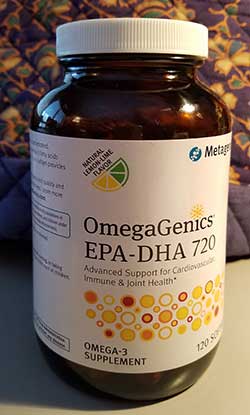Because such a large percentage of the population is obese, and fats are higher in calories than protein and carbohydrates, we have been led to believe that fats is just another F word.
This is part smart because some fats are very unhealthy. Included in the unhealthy fats would be rancid and hydrogenated fats, aka “trans” fats that have been chemically modified to prolong shelf life—a benefit for grocers, not the public. Trans fats have been described as like “eating plastics.” The threat to health is so significant that the U.S. Food and Drug Administration is going to require labeling on foods containing these oils. (It has been suggested that the only “safe” amount of these oils is zero.) Unfortunately these oils are everywhere! They are in cookies, cakes, chips, etc.
A low fat diet is not the answer however because fats and oils play a very important nutrition role. These nutrients are the primary constituent of cell membranes. Therefore they effect every single cell and organ in the body. Essential Fatty Acids (good fats) are necessary for the production of prostaglandins—a normally occurring group of chemicals that control blood pressure, cardiovascular and immune health.
So, what’s a mother to do?
Essential in nutrition means you must eat it, your body cannot make it. Essential fatty acids play a vital role in the production of all cell membranes (the outer wall of cells), as well as the production of prostaglandins, substances that regulate blood pressure, cardiovascular and immune functions. Because essential fatty acids play such a significant role in so many bodily functions, it stands to reason nutritional deficiencies in these fats will have serious and broad effects. This indeed is the case! Deficiencies have been linked to symptoms in behavior, mental processing, the skin, arthritis, gastrointestinal problems, hormonal problems, just to name a few. Deficiencies have been associated with any kind of inflammation and recently inflammation has been associated with diabetes, cancer, and cardiovascular disease. These are some of our most lethal and costly disorders. This is why avoiding the bad oils and fats and supplying the good oils and fats is so important to health.
 So where can we get these fats and oils in our diets? Omega 6 oils from corn, safflower, olive, cottonseed, sunflower, peanut, evening primrose, black currant and borage can all become prostaglandins 1—a natural anti-inflammatory. Omega 3 oils derived from linseed, flaxseed, walnut, soy, sesame, and canola and deep sea fish become anti-inflammatory prostaglandin 3. Alcohol, NSAID and trans fatty acids interfere with the production of anti-inflammatory prostaglandins.
So where can we get these fats and oils in our diets? Omega 6 oils from corn, safflower, olive, cottonseed, sunflower, peanut, evening primrose, black currant and borage can all become prostaglandins 1—a natural anti-inflammatory. Omega 3 oils derived from linseed, flaxseed, walnut, soy, sesame, and canola and deep sea fish become anti-inflammatory prostaglandin 3. Alcohol, NSAID and trans fatty acids interfere with the production of anti-inflammatory prostaglandins.
Most people do not consume enough of these oils on their own and may consume substances that interfere with the synthesis of these anti-inflammatory prostaglandins such as alcohol and trans fats. (That’s why they have “vitamin ibuprofen” deficiencies). It is far healthier to use good oils and supplements to fill the gap than to live a life of nutritional deficiency. We recommend and can supply you with OmegaGenics Omega 3 supplements available in three sizes.
One final point, when buying oils, use expeller or cold pressed oils such as those found in health food stores. Once opened, refrigerate to avoid rancidity. When buying supplements, buy from reputable sources such as a knowledgeable healthcare practitioner, especially fish oils which could be contaminated with heavy metals like lead and mercury.
Here’s to your health!
